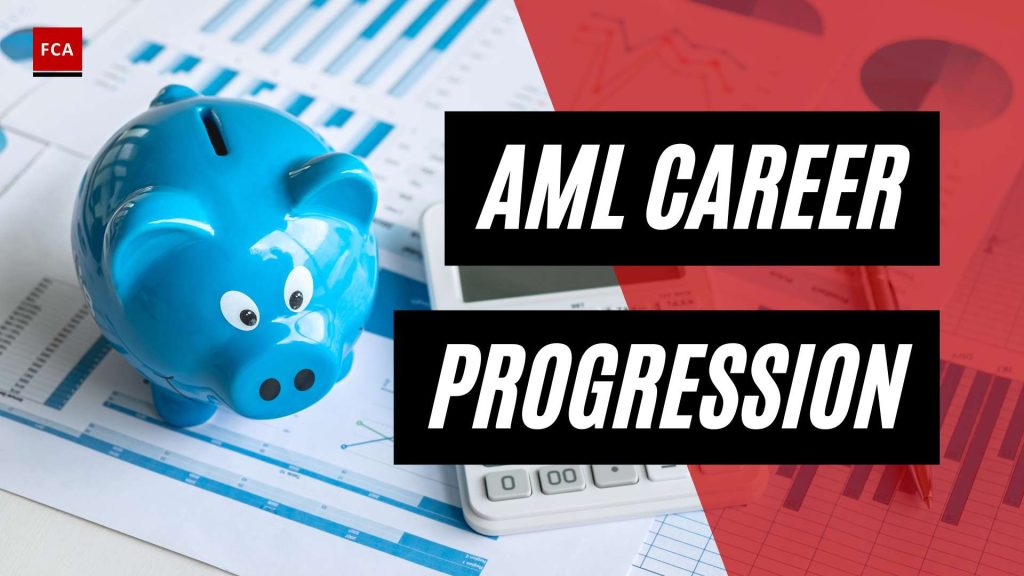AML Career Overview
To effectively combat money laundering and ensure compliance with anti-money laundering (AML) regulations, financial institutions rely on the expertise of AML specialists. These professionals play a critical role in investigating potential money laundering activities and implementing measures to mitigate financial crime risks.
Introduction to AML Careers
Careers in AML offer professionals the opportunity to contribute to the global effort of combating money laundering and protecting the integrity of financial systems. AML specialists work in various sectors, including banking, insurance, investment firms, and other financial institutions. They are responsible for identifying and investigating suspicious financial transactions, conducting due diligence on customers, and reporting any potential money laundering activities to relevant authorities.
AML careers are becoming increasingly important as major financial institutions and banks worldwide seek well-trained professionals to combat the rising threats of financial crime and money laundering activities (Financial Crime Academy). The demand for AML specialists continues to grow, creating opportunities for career progression and advancement within the field.
Role of AML Specialists
The role of AML specialists is multifaceted and requires a deep understanding of AML regulations, financial systems, and investigative techniques. Some key responsibilities of AML specialists include:
- Transaction Monitoring: AML specialists analyze financial transactions, utilizing advanced software and tools to identify suspicious patterns or unusual activities that may indicate potential money laundering.
- Customer Due Diligence: AML specialists conduct thorough due diligence on customers, verifying their identities, assessing their risk profiles, and ensuring compliance with regulatory requirements. This process helps to identify high-risk individuals or entities that may be involved in illicit financial activities.
- Investigations and Reporting: AML specialists investigate and analyze suspicious transactions, gathering evidence and documenting findings to build cases for potential money laundering activities. They are responsible for filing suspicious activity reports (SARs) with appropriate regulatory authorities when necessary.
- Compliance and Risk Management: AML specialists play a crucial role in ensuring that financial institutions comply with AML regulations and internal policies. They develop and implement robust AML programs, conduct risk assessments, and provide guidance to employees on AML best practices.
- Collaboration with Law Enforcement: AML specialists often work closely with law enforcement agencies, sharing information and providing support during investigations related to money laundering and financial crimes.
By fulfilling these responsibilities, AML specialists contribute to the prevention and detection of money laundering activities, safeguarding the integrity of financial systems and protecting institutions from regulatory and reputational risks.
As you progress in your AML career, you may have the opportunity to advance into more senior roles, such as AML Manager, Compliance Officer, or Financial Investigator. With experience, skills, and continued education within the field, you can take on greater responsibilities and make a significant impact in the fight against financial crime (ZipRecruiter).
In the following sections, we will delve deeper into the salary and compensation aspects of AML careers, explore career progression opportunities, and discuss the importance of certifications and training for AML professionals.
Salary and Compensation in AML
When considering a career in Anti-Money Laundering (AML), understanding the salary and compensation aspects is essential. AML specialists play a crucial role in preventing financial crimes and ensuring compliance with regulatory requirements. Let’s explore the average salary for AML specialists and the factors that can affect their compensation.
Average Salary for AML Specialists
The average salary for an AML specialist in the United States is approximately $68,000 per year, according to Financial Crime Academy. However, it’s important to note that this figure can vary depending on factors such as experience, location, and industry.
Specific job titles within the AML field can also impact salary levels. For example, an AML analyst can expect an average salary of $61,380 per year, as reported by ZipRecruiter as of November 2021. However, it’s worth noting that salaries can range from $33,500 to $89,500 per year, depending on factors like experience levels and geographic location.
To gain a more comprehensive understanding of salary ranges in the AML field, it’s beneficial to consult industry-specific salary surveys and guides. These resources provide valuable insights into the compensation trends and benchmarks for various AML positions.
Factors Affecting AML Salaries
Several factors can influence the salary and compensation of AML specialists. These factors include:
- Experience: AML professionals with more experience typically command higher salaries. As they gain expertise and knowledge in the field, their value to employers increases, leading to potential salary advancements.
- Education and Certifications: Higher levels of education, such as a master’s degree or professional certifications, can positively impact salary potential.
- Industry and Employer: The specific industry an AML specialist works in, such as banking, financial services, or consulting, can play a role in determining salary levels. Additionally, the size and reputation of the employer can influence compensation.
- Geographic Location: Salaries can vary based on the cost of living and demand for AML professionals in specific geographic locations. Urban areas and regions with a high concentration of financial institutions may offer higher salaries compared to rural areas.
- Job Responsibilities: The scope and complexity of an AML specialist’s job responsibilities can impact their salary. Those in senior or managerial positions may earn higher salaries due to increased responsibilities and decision-making authority.
It’s important to keep in mind that salary and compensation are not the sole factors to consider when evaluating an AML career. Other aspects such as job satisfaction, growth opportunities, and the meaningful contribution to combating financial crimes should also be taken into account.
Understanding the average salary for AML specialists and the factors that influence compensation can help individuals make informed decisions about their career progression in the AML field.
Career Progression in AML
In the field of Anti-Money Laundering (AML), career progression offers professionals the opportunity to advance their knowledge, skills, and responsibilities. AML career paths typically involve starting in entry-level positions and gradually moving up to more senior roles. Let’s explore the entry-level positions in AML and the advancement opportunities available.
Entry-Level Positions in AML
Entry-level positions in AML provide individuals with the foundation to develop their expertise in compliance and anti-financial crime. These roles often include titles such as AML Analyst, AML Investigator, or Compliance Analyst. Entry-level AML professionals are responsible for conducting initial investigations, analyzing financial transactions, and ensuring compliance with relevant regulations.
While specific job titles and responsibilities may vary across organizations, the common goal of entry-level positions in AML is to gain hands-on experience in identifying potential money laundering activities, conducting due diligence, and supporting the overall compliance efforts of the organization.
Advancement Opportunities in AML
Advancement in an AML career is driven by a combination of experience, skills, and continuous education within the field. AML professionals who demonstrate exceptional performance and a deep understanding of compliance requirements may have the opportunity to progress into more senior roles.
Advancement opportunities in AML can include positions such as AML Manager, Compliance Officer, Financial Investigator, or even Chief Compliance Officer. These roles involve higher-level responsibilities such as managing AML programs, overseeing compliance operations, conducting complex investigations, and developing strategies to mitigate financial crime risks.
To enhance career progression in AML, professionals often pursue additional qualifications and certifications.
Staying up-to-date with the latest regulations and compliance requirements is crucial for career advancement in AML. Ongoing professional development, attending industry conferences, and networking with other AML professionals can also contribute to career growth.
With the increasing focus on financial regulations and the need for companies to prevent money laundering activities, the demand for AML professionals is expected to grow, making AML careers an attractive choice for individuals interested in compliance and financial crime prevention.
In summary, AML career progression involves starting in entry-level positions such as AML Analyst or AML Investigator and gradually advancing to more senior roles like AML Manager or Compliance Officer. Gaining additional qualifications, staying updated with industry trends, and demonstrating expertise in compliance and financial crime prevention are key factors in succeeding and advancing within the field of AML.
Certifications and Training for AML Professionals
To excel in the field of Anti-Money Laundering (AML), professionals must equip themselves with the necessary certifications and training. AML certifications not only enhance job prospects but also demonstrate a commitment to staying current with industry standards and best practices.
Importance of AML Certifications
AML certifications play a vital role in the career progression of professionals in the compliance, risk management, and anti-financial crime domains. These certifications validate the knowledge and skills required to effectively identify, prevent, and mitigate money laundering risks.
Obtaining an AML certification demonstrates a commitment to professional growth and helps professionals stand out in a competitive job market. It showcases their expertise in AML regulations, compliance frameworks, risk assessment techniques, and investigative procedures. Employers often prioritize candidates with recognized certifications, as it indicates a level of competence and dedication to the field.
Job Opportunities and Demand in AML
As the importance of combating money laundering and financial crime continues to grow, so does the demand for professionals in the field of Anti-Money Laundering (AML). This section explores the growth of AML job opportunities and the industries seeking AML professionals.
Growth of AML Job Opportunities
The field of AML is experiencing significant growth, with job opportunities expected to increase by 15% by 2029. This growth translates to more than 14,000 new job openings in the field of AML (Financial Crime Academy). The increasing focus on financial regulations and the need for companies to prevent money laundering activities contribute to the rising demand for AML professionals.
AML careers offer a range of job roles, including AML analysts, investigators, compliance officers, risk managers, forensic accountants, and more. This diversity allows professionals to choose roles based on their interests and expertise (Source). Aspiring professionals in compliance, risk management, anti-money laundering, and anti-financial crime can explore various career paths within the AML field.
Industries Seeking AML Professionals
The demand for AML professionals extends across various industries, with major financial institutions and banks worldwide actively seeking well-trained individuals in this field. These institutions recognize the importance of having competent AML professionals to combat the rising threats of financial crime and money laundering activities (Financial Crime Academy).
While financial institutions are at the forefront of hiring AML professionals, other industries are also recognizing the need to strengthen their AML efforts. Industries such as insurance, fintech, real estate, gaming, and cryptocurrency are increasingly seeking AML expertise to ensure compliance with regulations and prevent illicit financial activities.
With the demand for AML professionals on the rise, individuals interested in compliance and financial crime prevention have a wide range of career opportunities to explore. AML careers not only offer stability and growth but also provide the satisfaction of contributing to the global efforts against money laundering and financial crime.
Stay tuned for the next sections of this article, where we will delve into the key skills, qualifications, and certifications necessary for a successful career in AML.
Key Skills and Qualifications for AML Careers
When pursuing a career in Anti-Money Laundering (AML), there are certain key skills and qualifications that are essential for success in the field. AML specialists play a crucial role in preventing financial crimes and ensuring compliance with regulations. Let’s explore the essential skills and educational requirements for AML careers.
Essential Skills for AML Specialists
To excel in the field of AML, professionals need to possess a set of essential skills that enable them to effectively analyze financial transactions, identify potential risks, and implement appropriate measures to mitigate money laundering and terrorist financing. Some of the key skills for AML specialists include:
- Analytical Skills: AML specialists need strong analytical skills to examine complex financial data, detect patterns, and identify any suspicious activities or transactions that may indicate money laundering.
- Attention to Detail: Given the intricate nature of financial transactions, attention to detail is crucial to ensure accurate analysis and identification of potential risks.
- Knowledge of AML Regulations: A thorough understanding of AML regulations and compliance requirements is essential for AML specialists to effectively implement preventive measures and stay up-to-date with industry best practices.
- Communication Skills: AML specialists need to be able to effectively communicate their findings and recommendations to stakeholders, including colleagues, management, and regulatory authorities.
- Investigative Skills: AML specialists should possess investigative skills to conduct in-depth research, gather evidence, and build cases when necessary.
- Ethical Awareness: Maintaining high ethical standards and integrity is paramount in the AML field, as it involves dealing with sensitive financial information and potential criminal activities.
Developing and honing these skills through education, training, and on-the-job experience is vital for a successful career in AML.
Educational Requirements for AML Positions
To pursue a career in AML, a Bachelor’s degree is typically required in a related field such as Finance, Accounting, Business Administration, or Criminal Justice. Entry-level positions often necessitate a solid foundation in these areas to understand financial systems, regulations, and compliance requirements. Some employers may also prefer candidates with certifications such as the Certified Anti-Money Laundering Professional (CAMP) certification, which demonstrates a deep understanding of AML principles and practices.
Continuing education and professional development play a significant role in the AML field. Staying updated with changing regulations and emerging trends is crucial to effectively combat money laundering and financial crimes. AML professionals often pursue additional certifications or advanced degrees to enhance their knowledge and expertise in the field.
By possessing the necessary skills and educational qualifications, individuals can embark on a rewarding career in AML and contribute to the critical task of safeguarding the financial system from illicit activities.
For more information about AML salaries and compensation, refer to our article on AML salary and compensation trends.









